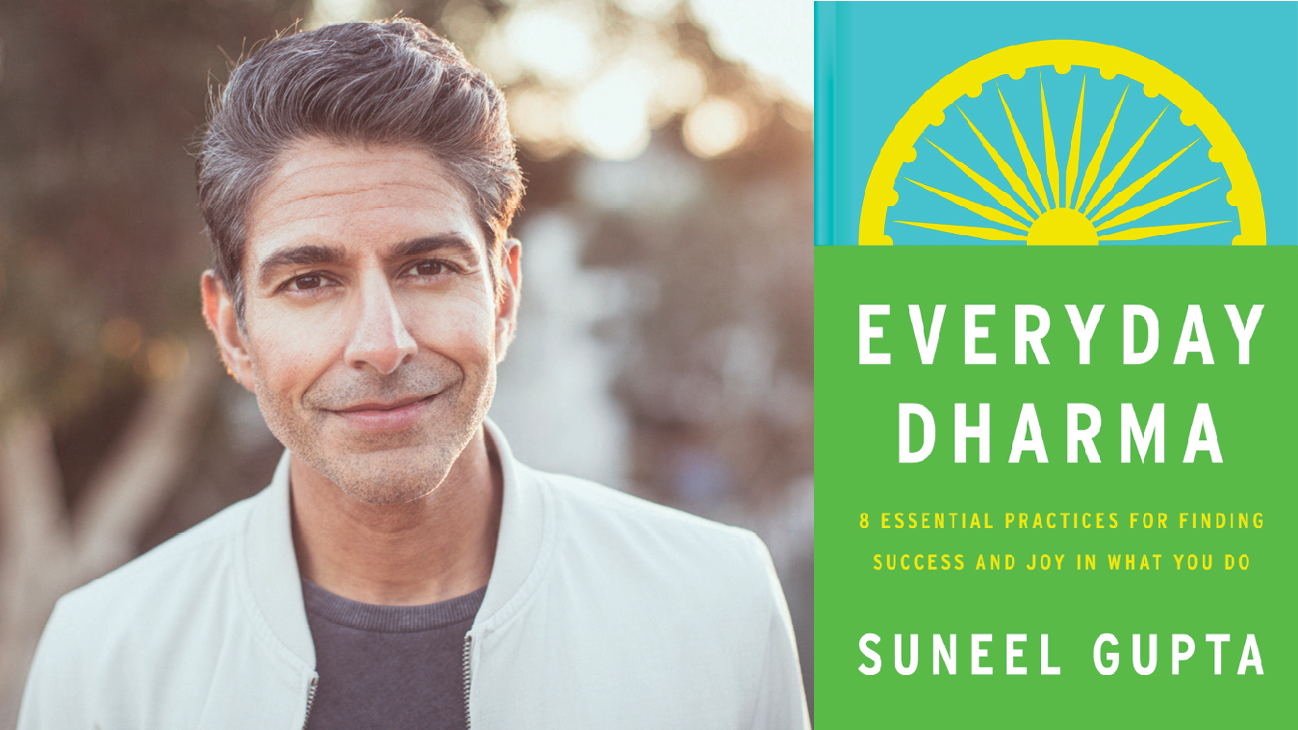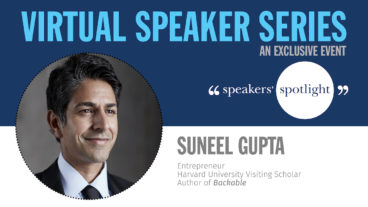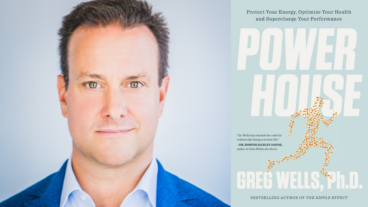As the founding CEO of RISE, a breakthrough wellness company, Suneel Gupta has helped thousands of people build better habits for life and work. Now as a bestselling author and Harvard Medical School visiting scholar, he’s taken his mission one step further — helping organizations reach sustainable peak performance by bolstering their people’s emotional resilience and engagement.
Suneel explores this in full in his new book Everyday Dharma. He argues that for too long we have compartmentalized work and well-being and ignored the fact that both are essential for sustained success. Suneel helps break that negative cycle by helping readers find their “Dharma”.
We sat down with Suneel to talk about his new book, learn more about “Dharma”, and how finding and implementing our Dharma in our everyday life helps us let go of anxiety and experience true joy, both at home and work.
Speakers Spotlight: Your new book Everyday Dharma explores eight essential practices for finding success and joy in what you do. What is Dharma and why does it matter?
Suneel Gupta: Dharma is your inner calling, or what my grandfather called your essence. When you’re expressing that essence, you come alive in a brand-new way. You feel creative and energized. You have a sense of purpose that shines through your work.
When you’re not in your Dharma, you can feel depleted and lost. The majority of us consider our job to be the #1 predictor of our mental health. And yet, most of us don’t enjoy what we do. It doesn’t have to be this way.
This book is about how we find and live our Dharma when we have bills to pay, schedules to keep, and people to take care of.
SpSp: Why was it important to write this book now?
SG: Too many of us are feeling a sense of emptiness at our jobs. This is not a Gen Z issue — over one-third of C-suite leaders say they will likely leave in the next 12 months due to work-related stress. Companies are speeding up with AI and automation, but as individuals we’re disengaging and quietly quitting. We’re losing an emotional connection to our work.
Dharma is a timeless solution to bring that emotional connection back.
SpSp: How does one find their Dharma?
SG: You don’t have to go looking for your Dharma, it’s already inside of you. It’s just been buried by the realities of life — priorities, schedules, comparisons, and expectations.
Michelangelo would look at a block of marble and say, “the sculpture is already inside, I just need to chip away at what’s hiding it.” The same is true for your Dharma.
In the book, I offer four chisels that you can use to chip away at the cruft. One chisel is to identify the bright spots of your day-to-day job. Even if you’re unhappy with your work, what are the tiny moments that make you happy? We can use miserable experiences to pinpoint what brings us joy.
SpSp: For some, their Dharma may not align with their everyday work. How do we bridge that gap?
SG: You don’t need to leave your job to live your Dharma. You can find it right where you are.
In the book, I tell the story of a project manager named Mila who wanted to quit her job and become a teacher. But she didn’t have the financial flexibility to leave her role because her family relied on her income and healthcare insurance.
Like a lot of people, Mila felt trapped in a career that didn’t feel like hers. Then one day a mentor asked her a simple and yet powerful question: what is it, specifically, about teaching that captivates you?
When Mila dug deep, she discovered that what she really loved was “helping people grow”. And while teaching was one way to express that essence, there were certainly others.
So, she joined the training team inside her division and became a rising star inside the company. She went from dreading her job to hopping out of bed with happiness and energy. Her teammates noticed, her husband and her kids noticed.
She was living her Dharma, finding joy through her work, and she didn’t even have to leave her company or take a big risk to make it happen. That’s the magic of Dharma — you don’t have to abandon where you are to transform your life.
SpSp: What do leaders need to understand about Dharma?
SG: Managers have a greater impact on their team’s mental health than a doctor or even a therapist. As leaders, we can either ignore this truth, or we can accept and even embrace it.
The role of a modern-day leader is changing, and those who don’t change with it will find a glass-ceiling over their potential. We must embrace that people are deeper than a job title. Your Dharma isn’t “what you do”, it’s “who you are” — and how “who you are” gets expressed through “what you do”.
Leaders of the past focused on “what you do”. Leaders of the future will focus on aligning “who you are” with “what you do”. That means understanding, at a human level, what makes the people around you come alive, and carving paths for them to express that in their daily work.
My new keynote presentation “Purpose in Action” is all about the everyday tools we can use to find our Dharma and help those around do the same. When that happens, we realize that happiness and high performance aren’t opposites, but companions.
Drawing on history, science, Eastern philosophy, Western modalities, and captivating personal stories, Suneel Gupta helps audiences find their path back to purpose and joy, equipping them with actionable tools to re-engage in their work and life with a renewed sense of vigour and meaning.
Contact us to learn more about Suneel and how to book him for your next event.




